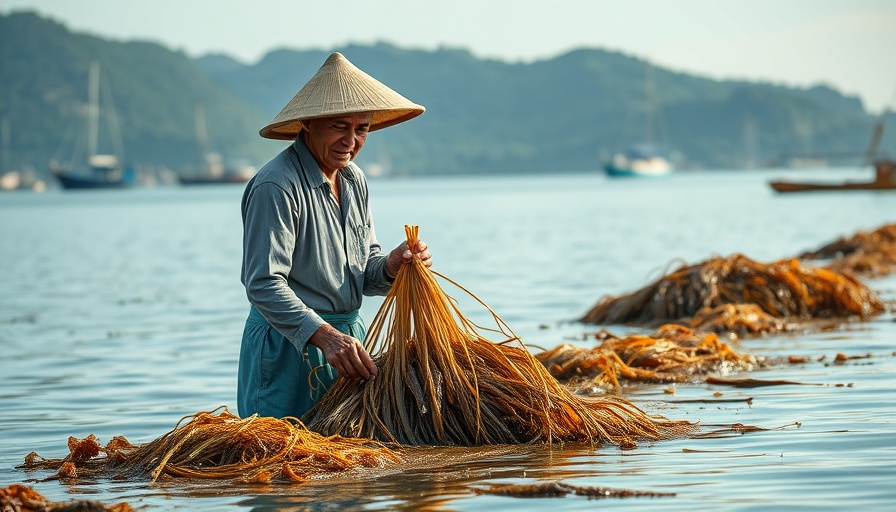
The Legacy of Seaweed Cultivation in Indonesia
For generations, the women of Nusa Penida and Nusa Lembongan have cultivated seaweed, standing as guardians of both their cultural heritage and the local ecosystem. This ancient livelihood has provided sustenance, income, and a connection to the ocean. However, with the approach of climate change and the rapid development of tourism, these women are facing challenges that could jeopardize not just their livelihoods but the very fabric of their communities.
Adapting to Change: The Impact of Climate Change on Seaweed Harvesting
Ibu Mitri, a seasoned seaweed farmer, illustrates this with a heavy heart as she discusses how changing rainfall patterns and more frequent storms have disrupted their agricultural practices. As rain becomes less predictable, the intricate knowledge passed down through generations about harvesting and cultivating seaweed is becoming increasingly threatened. “The water, once the source of life, is becoming more of a challenge,” she explains, emphasizing how increased rainfall leads to crop damage, disrupting a livelihood that is deeply intertwined with the rhythms of nature.
Collaborative Solutions: Joining Forces for Sustainability
In the face of these challenges, women like Ibu Mitri are not just looking back at what was lost; they are also taking proactive measures to sustain their livelihood. Collaborations between seaweed cultivators, tourism operators, and coral conservation groups are emerging as innovative solutions for resilience. By embracing these alliances, women are adapting their seaweed harvests to integrate eco-tourism, attracting visitors who can learn about sustainable practices and the delicate balance of marine resources.
The Economic Importance of Seaweed
Indonesia has emerged as one of the largest seaweed producers worldwide, ranking high in the export of both raw and processed seaweed products. In 2021 alone, the country produced an estimated 9 million metric tons of seaweed, contributing significantly to its economy with a valuation surpassing US$1 billion. This positions seaweed not only as a source of income for local communities but also as a crucial component of Indonesia’s economy, fostering sustainable development, and promoting fair trade practices.
Is Climate Change the Final Straw?
The effects of climate change continue to loom over the seaweed cultivators like an ominous cloud. Increasing temperatures and extreme weather are not just environmental concerns; they represent a shift in the ecological balance and economic stability for local women. The growth patterns of seaweed, informed by seasonal shifts, are now being dictated by erratic climate phenomena, leaving these cultivators to question how long their traditions can withstand such pressures.
Advocating for Sustainable Practices
The current crisis calls for an urgent need to advocate for sustainable practices and environmental conservation. As women fight to preserve their way of life, it becomes increasingly vital to promote policies that protect marine ecosystems and the communities relying on them. Supporting sustainable tourism initiatives, implementing environmental regulations, and fostering eco-friendly practices can directly impact the resilience of seaweed communities.
Call to Action: Join the Movement for Sustainability
As consumers, we play a crucial role in shaping the future of sustainable development. By choosing to support ethically sourced seaweed products and advocating for fair trade practices, we can contribute to reducing carbon footprints and protecting vulnerable communities. Get involved by supporting eco-friendly initiatives, promoting awareness about climate change, and advocating for sustainable practices that not only benefit local women farmers but also ensure the sustainability of our global ecosystem.
 Add Row
Add Row  Add
Add 



Write A Comment